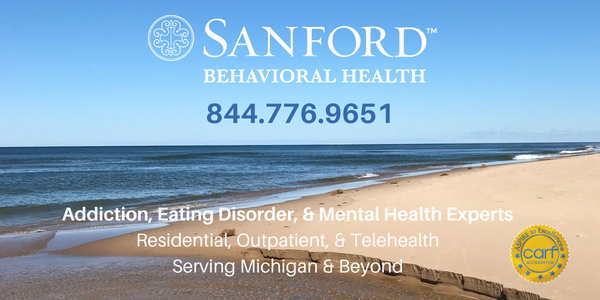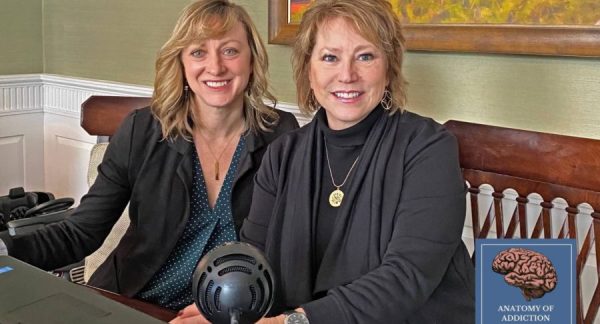Family Guide to Understanding Addiction Relapse

Find strength in recovery together.
For family recovery to become a reality, each household member must have an accurate perspective on addiction relapse and their recovery plan. Any situation that stimulates old addictive pathways can lead to relapse in the person with an addictive condition, likewise, to family members. The most important thing is what the individual with a substance use disorder (SUD) and their family do when those old pathways are stimulated.
With the help from Sanford Behavioral Health and the family program we offer, we provide an understanding of addiction relapse from a family perspective. Understanding addiction relapse as a condition prepares us to be effectively involved in the loved one’s recovery process, recognizing that addiction is an ongoing experience and can lead to multiple occurrences of use or relapse. It also helps us identify the signs of potential risk and utilize our support system if needed. To learn more about our family program, reach out to us at 616.202.3326, and we can provide more information.
Understanding Relapse
Acknowledging the realities of relapse and understanding the factors contributing to degeneration are essential to the recovering family. Here are some things to remember when building an accurate and healthy perspective toward relapse. First, any person who enters recovery from a SUD is likely to experience a lapse in some form or another. Second, addiction is a complex, chronic, and progressive brain condition. Indeed, all chronic diseases are prone to relapse. Finally, addiction is a manageable and treatable disease. However, like other chronic diseases, it will always require management for stability.
According to National Institute on Drug Abuse (NIDA), like other chronic diseases, there is a 40%-60% relapse rate for SUD patients. Relapse may well be a learning experience and part of the recovery process. In her book, Everything Changes, Beverly Conyers reminds family members always to be prepared for relapse. Recovery for someone with a SUD and their family is a lifelong process. Time spent in treatment for a SUD is laying the foundation for ongoing recovery. Ongoing recovery happens due to the lifestyle that the individual with the SUD and their family create together. This is where effective management of this family disease comes into play.
A Family Guide to Addiction Relapse and Recovery
An effective individual (adult) family member recovery plan includes the following:
- Attend individual counseling to reduce your codependent behaviors
- Participate in a weekly support group for yourself with other people dealing with codependent behaviors
- Obtain a sponsor or accountability partner, especially if you do not get one-on-one counseling
- Journal your thoughts and feelings about your interactions with your loved one. Such as positive and negative feelings. Do this several times a week. And take some of these journal entries to counsel or your identified support person
- Read about addiction and family life
- Practice daily positive self-care: eat and sleep correctly, exercise, work, and play
- Keep communication open with your loved one with the SUD. Further, share your thoughts and feelings, refuse to argue, and agree to disagree
- Do not judge or shame your family member with the SUD for their thoughts, feelings, or behaviors
- But do keep encouraging yourself and your loved one to do what is necessary for each of your recovery plans
- Keep in mind—recovery is a lifelong process
- Last but not least, keep improving your family life together and keep recovery talk to a specific time
At Sanford Behavioral Health, we aim to help you and your loved one understand addiction relapse so that you can have the knowledge and tools to stay on the path of recovery. We provide a family-centered program with evidence-based practices to give families the necessary understanding and skills for addiction relapse prevention.
Understanding Relapse and Addiction
Relapse is a complex and often misunderstood part of addiction recovery. It’s important to remember that relapse doesn’t mean failure—it simply means that something in your plan needs to be re-evaluated and modified to help you stay on track. Everyone experiences the recovery process differently, so the most detailed plan may not always be successful. Tips on not getting discouraged about relapse include:
- Be patient and take it slow
- Focus on the positive, and don’t compare your progress to anyone else’s
- Remember that addiction is a chronic, lifelong condition—with treatment, there can be periods of remission
- Reach out for help when needed—addiction recovery isn’t something you have to do alone
It can be hard to understand why relapse happens, but mindfulness and support can help turn setbacks into long-term successes. With communication, understanding, and guidance from trustworthy individuals or programs,relapse recovery becomes much more manageable.
Get Help from Sanford Behavioral Health with Addiction Relapse
Sanford Behavioral Health has addiction specialists who understand addiction and relapse. We provide addiction treatments tailored to each individual, including evidence-based therapies to help your loved one cope with addiction relapse. Our program is designed to work within the family system. We emphasize communication, understanding, and support for lasting changes in addiction behaviors.
Our family program helps you and your loved one understand addiction relapse, empowers the family to make positive changes, and provides treatment strategies to cope with addiction relapse. We are here to help you find strength in recovery together. Contact us today at 616.202.3326 for more information on addiction relapse and understanding addiction.




